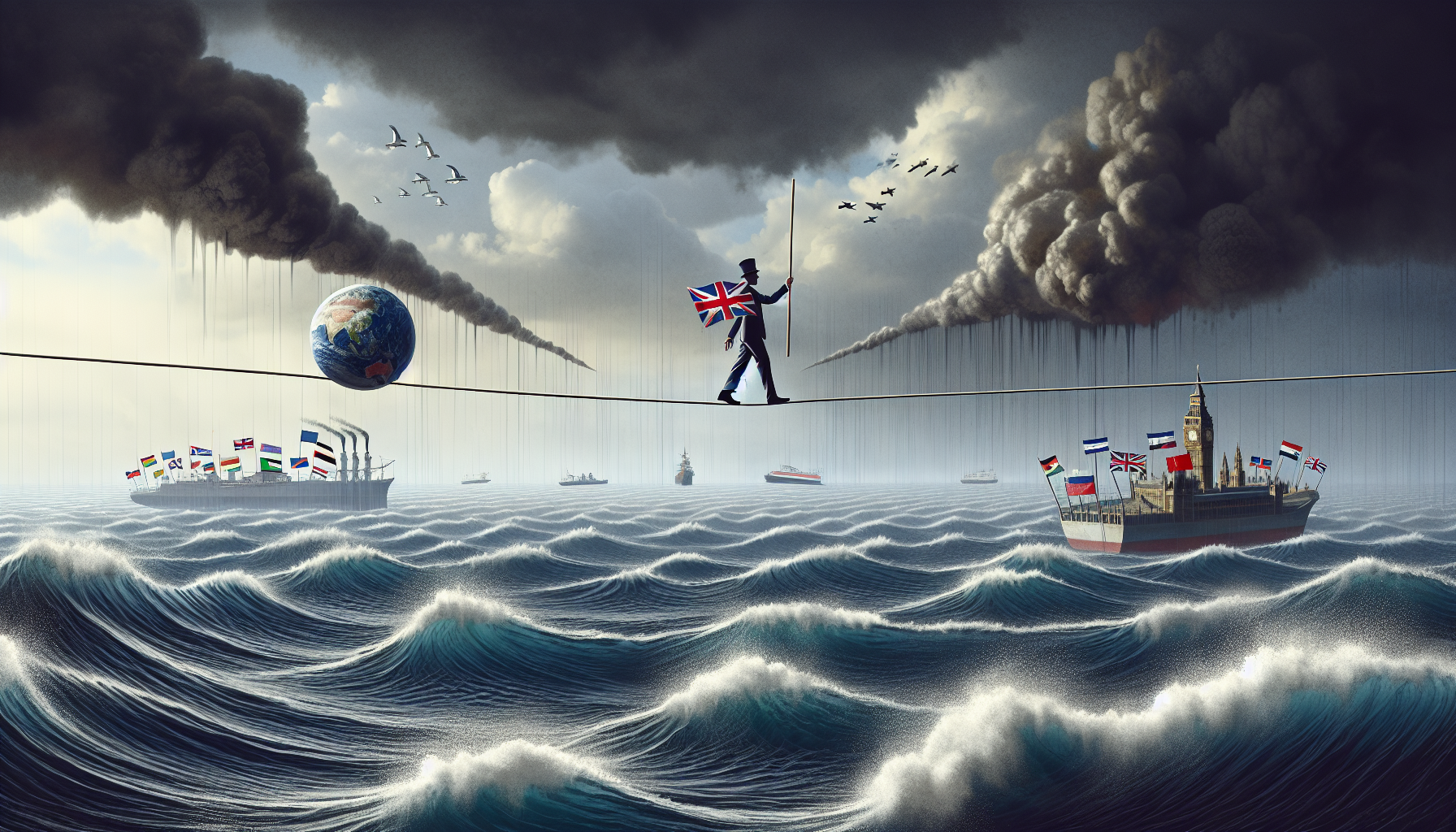Title: In the Crosshairs of Conflict: UK's Delicate Dance in the Middle East
Dear readers,
When geopolitics reaches a boiling point, and the stakes include nuclear capabilities and regional stability, we’re reminded not merely of distant conflicts, but the very fabric of international diplomacy. Enter the UK’s position on the contentious landscape of the Middle East—a nimble waltz on a diplomatic tightrope.
Picture this: a House of Commons debate, the echo of voices resonating as Foreign Secretary David Lammy takes center stage. The situation is tense, with Israel and Iran locked in a cycle of retaliatory strikes, and the U.S. playing a contentious lead role with its recent bombardment of Iranian nuclear sites. This latest chapter in the geopolitics of the Middle East unfolds not just through military might, but through the words and actions of nations meticulously balancing on the precipice of conflict.
A Balancing Act in Diplomacy
On June 23, 2025, Lammy made a statement that reverberated through the halls of Westminster and beyond. He asserted that the UK is prepared to safeguard its interests, underscoring force protection at peak levels. Yet, the UK's stance on U.S. military action raises eyebrows—unquestioned support is absent, replaced by a nuanced call for negotiation over confrontation.
This diplomatic finesse mirrors techniques seen in familial mediation—seek common ground, minimize escalation, and advocate for dialogue. While the U.S. flouts its military might, the UK is the voice whispering de-escalation.
Why does this matter? Because at the heart of this geopolitical chess game is more than policy; it’s a narrative of global citizenship. In navigating such international dilemmas, the UK unwittingly tells the world a story about its ethical stance—a tale far more significant than military logistics.
Regional Repercussions
As the RAF evacuates British nationals from volatile zones, regional allies observe closely. The UK’s resolve is clear: defend its citizens and interests while carefully weighing its alliances.
Consider this—during wedding speeches, we often highlight unity amidst trials. Lammy’s message isn’t far removed: a call for unity amidst international dissonance. It’s a modern-day diplomatic marriage vow—supporting a broader alliance while maintaining individual ethical standards.
The Global Stage and Homefront Critiques
Back home, the calls for clarity are loud. Opposition voices like Priti Patel accuse the Labour government of wavering, demanding transparency about the UK's stance on recent U.S. actions. It’s an echo of broader societal demands—honesty in leadership, clarity in purpose.
In every conversation about nuclear non-proliferation, the stakes stretch far beyond borders. They reach into our living rooms, our classrooms, and our collective conscience. Is it just that wars unfold far away, or is it that they provide an unsettling mirror reflecting our global interconnectedness?
A Whisper of Hope and Caution
Lammy’s remarks are not just about military strategy; they’re about leading with moral integrity in an era of precarious peace. He advocates for negotiations as a reminder that the most precious victories are won around a table, not a battlefield.
So what do we take away from this political whirlwind? It’s a reminder that diplomacy, like the most delicate of dances, requires balance, poise, and the courage to step back from the brink.
Until next time, nurture dialogue, not division.
Yours in thought and reflection,
A Voyager of Politics and Peace

